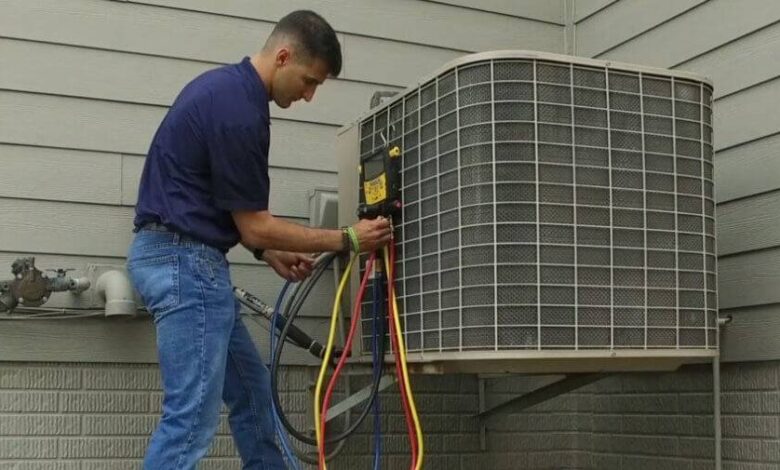Common Causes of Air Conditioning Failure and How to Prevent Them

As the temperature rises, our reliance on air conditioning systems increases significantly. However, there are times when our trusty AC units fail to deliver the cool comfort we expect, leaving us sweaty and frustrated. Understanding the reasons behind air conditioning failures can help us prevent them and ensure our systems work efficiently when we need them the most.
- Poor Maintenance: One of the primary reasons for AC malfunction is neglecting regular maintenance. Over time, dust, dirt, and debris accumulate in the filters, coils, and fins, obstructing airflow and reducing the system’s efficiency. This buildup not only hampers cooling performance but also increases energy consumption and strain on the components.
Prevention: Schedule routine maintenance checks with a professional HVAC technician. Regularly clean or replace air filters, clear debris around the outdoor unit, and ensure proper airflow by keeping vents unblocked. - Refrigerant Leaks: Refrigerant is crucial for cooling the air in your AC system. If there’s a leak, the refrigerant level drops, leading to diminished cooling capacity and potential damage to the compressor.
Prevention: Regularly inspect the refrigerant lines for leaks and ensure they are properly sealed. If you notice a drop in cooling performance, strange noises, or ice buildup on the coils, contact a professional to diagnose and fix any refrigerant leaks. - Electrical Issues: Faulty wiring, capacitor problems, or a malfunctioning thermostat can all contribute to AC failure. Electrical issues can cause the system to short-circuit, trip the breaker, or fail to start altogether.
Prevention: Regularly check for signs of electrical problems such as flickering lights when the AC kicks in, unusual sounds from the unit, or frequent cycling. Ensure all electrical connections are secure and consult a qualified electrician or HVAC technician for any repairs or replacements. - Frozen Evaporator Coils: When airflow is restricted due to dirty filters, blocked vents, or low refrigerant levels, the evaporator coils can freeze. This not only reduces cooling efficiency but also puts strain on the compressor and other components.
Prevention: Maintain proper airflow by cleaning or replacing filters regularly, keeping vents unblocked, and ensuring adequate refrigerant levels. If you notice ice buildup on the coils, turn off the AC and allow the ice to thaw before restarting or seek professional help. - Compressor Issues: The compressor is the heart of an air conditioning system, responsible for circulating refrigerant and facilitating heat exchange. Over time, it can wear out due to age, lack of maintenance, or electrical problems, leading to AC failure.
Prevention: Schedule regular maintenance to check the compressor’s condition, ensure proper lubrication, and address any underlying issues promptly. Avoid overworking the system by setting thermostat temperatures at optimal levels. - Poor Installation: Improper installation can lead to various AC problems, including inadequate cooling, airflow issues, and frequent breakdowns. Incorrect sizing, improper ductwork, and placement in direct sunlight or near heat sources can all impact performance.
Prevention: Hire licensed and experienced professionals for AC installation. Ensure the system is correctly sized for your space, ductwork is designed and installed properly, and the unit is placed in a shaded area away from heat sources. - Age and Wear: Like any mechanical system, air conditioners have a lifespan. As they age, components wear out, efficiency decreases, and the risk of failures increases. Regular maintenance can prolong the lifespan, but eventually, older units may need replacement.
Prevention: Stay proactive with maintenance, monitor the AC’s performance, and consider upgrading to a newer, more energy-efficient model when the unit approaches the end of its lifespan.
In conclusion, understanding the common causes of air conditioning failure and taking proactive measures to prevent them can save you from discomfort, costly repairs, and premature replacements. Regular maintenance, proper installation, and prompt attention to any signs of trouble are key to keeping your AC running smoothly and efficiently, especially during the sweltering summer months.



